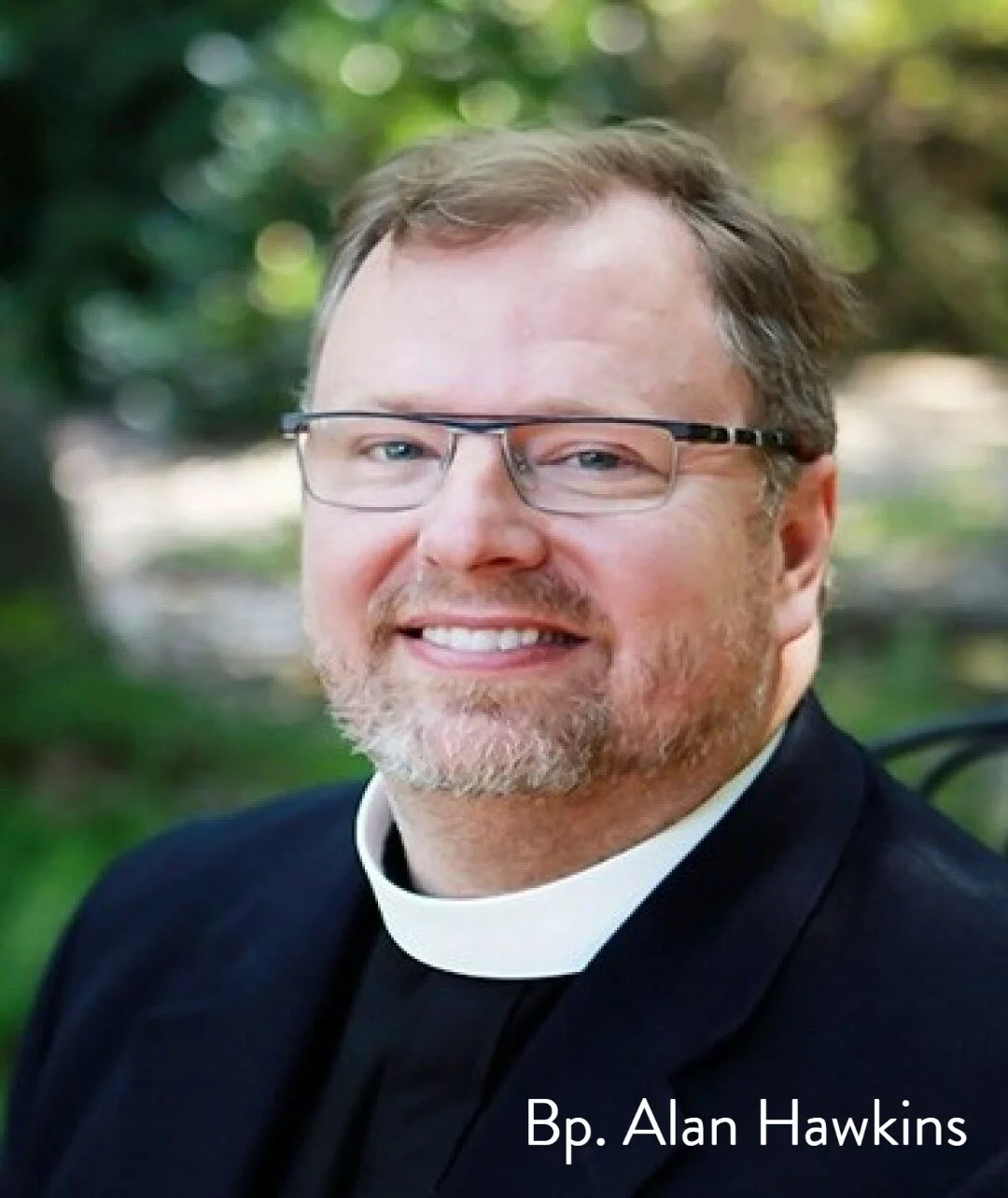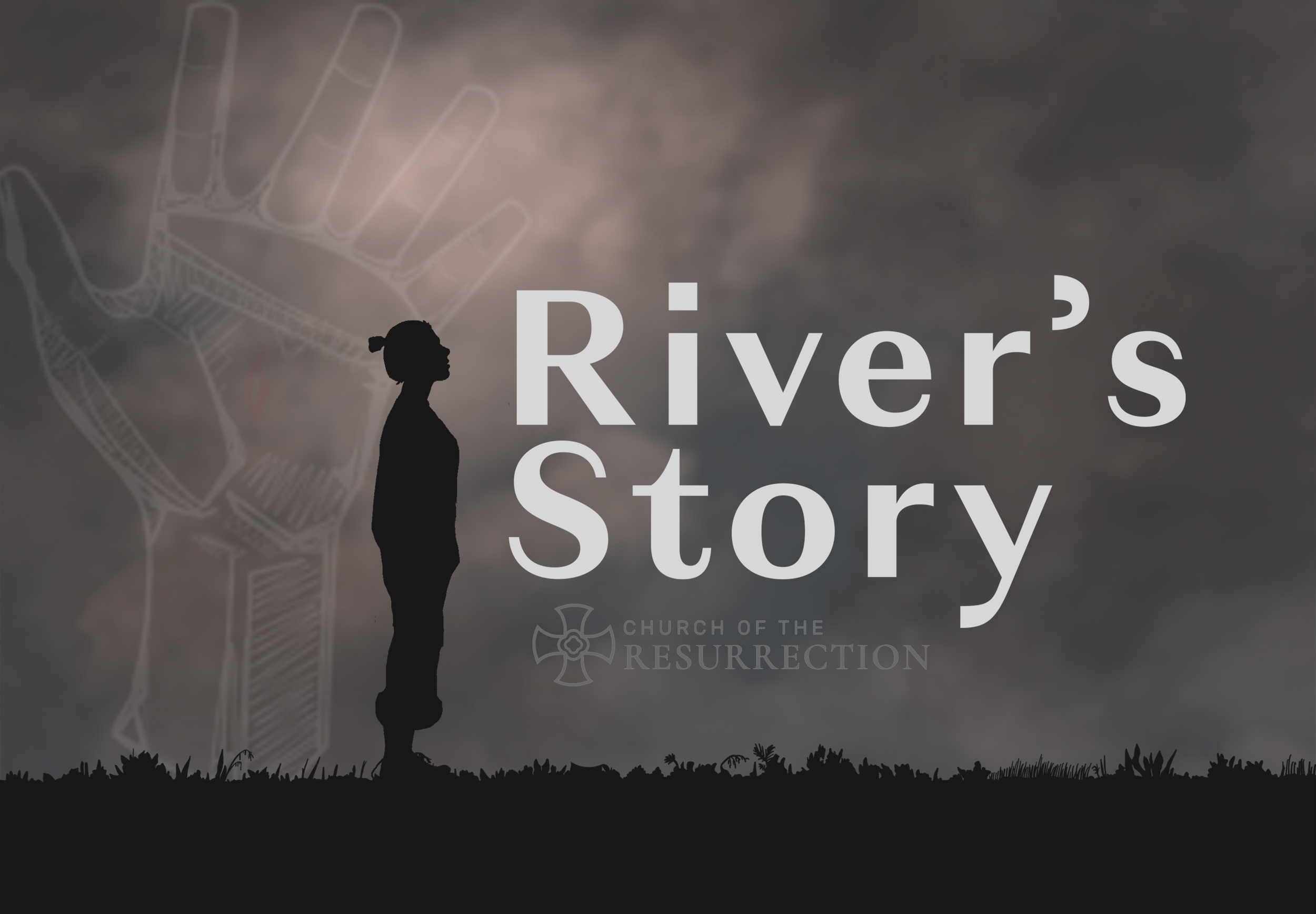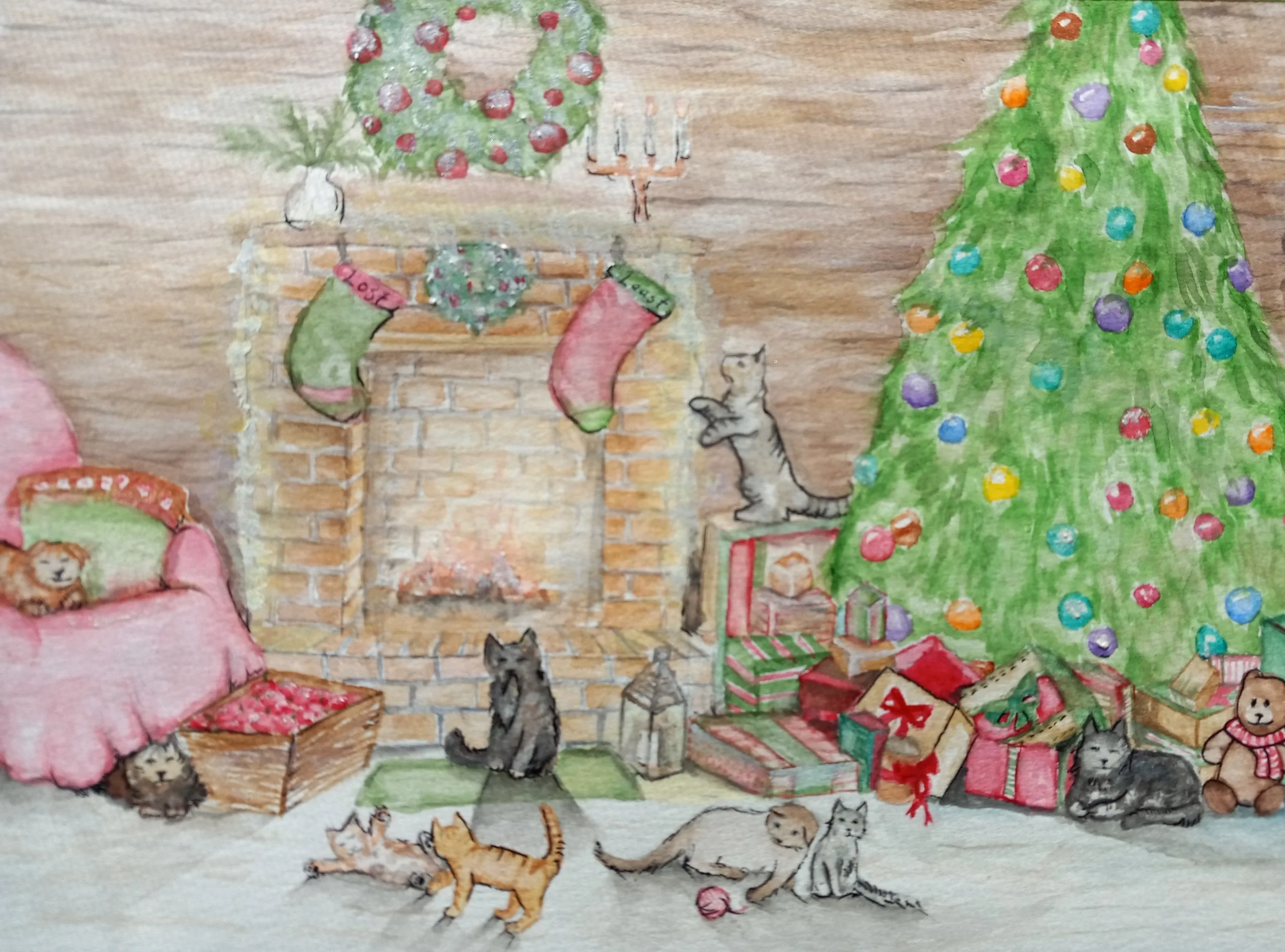ACNAtoo 2022-2023: Whistleblowers, Warnings, and What You Can Do
ACNAtoo was launched in June 2021 in response to the pleas of survivors of sexual abuse and their advocates in the ACNA Diocese of the Upper Midwest. We now exist to support survivors reporting abuse in all dioceses of the ACNA. After a busy year, we’re looking back on the events of 2022 and looking forward with hope to the year ahead.
Looking Back
JANUARY
On January 5, 2022, the ACNA Provincial Response Team (PRT) presented certain survivors of abuse by Mark Rivera with two pre-selected investigation firms. The PRT invited these survivors to vote on which of these firms should conduct a third-party investigation into the Diocese of the Upper Midwest (UMD).
This invitation came after six months of fruitless communication between ACNA COO (now Bishop) Alan Hawkins and ACNAtoo advocates, beginning around the time of our July 15, 2021 open letter to Archbishop Foley Beach. During these six months, our team attempted to educate the Province on the essential components of a trauma-informed, survivor-centered investigation.
Multiple Mark Rivera survivors declined to participate in the investigation firm selection process (and ultimately the investigation itself) because they were being asked to cast a vote while simultaneously being denied the most critical information about the investigation: the contract specifying the processes and parameters of the investigation.
These survivors instead added their signatures, along with almost 700 other signatories, to our January 2022 Petition to the Province. The petition called upon the ACNA to honor the ACNAtoo survivors’ wishes and hire an investigation firm that would comprehensively investigate allegations of mishandling, following the best practices of an independent and survivor-centric investigation.
Despite these public survivor requests, the PRT selected Husch Blackwell to investigate UMD sexual abuse mishandling allegations and refused to waive attorney-client privilege or publish the investigation contract. The PRT also hired Telios Law to separately investigate other abuse of power allegations in the UMD, again declining to waive privilege or publish the contract, as well as declining even to publish a final investigation report.
On January 17, 2022, three of the eight PRT members resigned publicly. In an April 25 open letter to fellow clergy, ACNA Deacon and former PRT Victim Advocate Gina Roes recounted why:
“[I]n the preceding days [before the resignation] we began receiving direct emails from survivors and witnesses whose letters to the PRT were never shown to us. After our resignation, our inboxes continue to fill up with people reaching out to share their stories concerning both the UMD and the Province.”
This realization and other serious irregularities in the PRT process led these three PRT members to believe that Bp. Alan Hawkins and other ACNA leaders had gravely mishandled the abuse cases in the UMD and were not proceeding in good faith.
That same winter, Helen Keuning, a longtime ACNA parishioner and member of the UMD Bishop’s Council, began to identify patterns that revealed the UMD's continued choice to prioritize institutional power over survivor care. On March 18, 2022, she, too, would resign her position, and come forward with her testimony shortly afterwards.
FEBRUARY
On February 21, 2022, ACNAtoo published River's Story, which details how Church of the Resurrection (Rez) lay leader Mark Rivera groomed and abused her in plain view of Rez leaders in the early 2000s. River’s story corroborates Lily’s Story, published in 2021, further refuting UMD Bp. Stewart Ruch’s standing claim that Mark Rivera’s abuses did not take place “on church property or at a church event.”
MARCH
On March 18, 2022, senior UMD Bishop’s Council member Helen Keuning resigned her position on the Council, saying she could no longer participate in the process in good conscience. Helen was a longtime ACNA member who had also served on Bp. Stewart Ruch’s 2021 diocesan response team, which was formed to address survivor calls for an independent investigation into the Mark Rivera abuse mishandling situation.
After more than a year of seeking answers inside the UMD, Helen would conclude:
“I no longer trusted the leadership in the UMD or in the ACNA to follow in the footsteps of Christ. I no longer imagined that women have a true voice in our diocese. I no longer believed that I am – or that my daughters would be – believed by those who hold power here.”
Helen contacted ACNAtoo and asked us to publish her testimony detailing her past year’s experience and the reasons she ultimately resigned from the Bishop’s Council.
APRIL
On April 25, 2022, ACNAtoo released the first installment of our Witnesses Series. This series would bring together key documentation and first-hand accounts from former UMD Bishop’s Council member Helen Keuning, former PRT members Gina Roes, Autumn Vandehei, and Christen Price, and ACNAtoo liaison to the Province Audrey Luhmann. These five women demonstrated how the ACNA’s institutional betrayal of survivors followed strikingly similar patterns, from diocesan conference rooms up through the highest provincial offices.
Also in April 2022, a group of survivors in the Diocese of Christ Our Hope (COH) issued an open letter through ACNAtoo, alleging serious mishandling of their allegations of spiritual abuse and pastoral misconduct against the Rev. Dan Claire at Church of the Resurrection in Washington, DC. This letter served as a public reminder that ecclesiastical abuse of power in the ACNA was not limited to the UMD and the Diocese of Pittsburgh.
COH Bishop-coadjutor Alan Hawkins, who had overseen the failed PRT response to the UMD crisis, now became involved in the investigation in his own diocese.
COH enlisted Grand River Solutions, the firm rejected by UMD survivors just months earlier. COH hired GRS not even to investigate the outstanding allegations of abuse, but only to investigate the mishandling of an earlier investigation. It remains unknown how COH will address the original complaints against Rev. Claire, make amends for their own mishandling, or prevent such problems from recurring in the future.
MAY
On May 16, 2022, ACNAtoo published Ursa's Story, which details how Christopher Lapeyre used his position as a high school teacher to groom and later sexually abuse her during the same time period when he was serving as a lay leader at Church of the Resurrection.
Ursa’s story corroborates Clarke’s Story, published in 2021, in which Clarke, also a former student of Chris Lapeyre, alleges that Chris groomed her at both school and church while he was serving as a lay leader at Christ Our Light Anglican Church (COLA). Ursa’s story prompted Rez to finally inform their congregation about Lapeyre, who was still attending Rez in 2022.
Throughout the spring of 2022, current and former parishioners at Church of the Resurrection, as well as UMD leaders, interviewed with Husch Blackwell and Telios Law as part of the two investigations into the UMD. Many individuals — including former UMD Bishop’s Council member Helen Keuning — privately and publicly raised concerns about their experience with both law firms. (Read some of those public comments here, here, and here.)
The Husch Blackwell investigation report, released in September, would validate many of these concerns. Meanwhile, nearly a year after its launch, the status of the Telios investigation remains unknown. The approximate cost of these two investigations to ACNA parishioners is $350,000, according to the Province, yet to date there is no evidence that either investigation has led or will lead to any form of accountability in the UMD.
JULY
After years of delays, former ACNA lay leader Mark Rivera’s criminal trial finally began on July 12, 2022. Rivera was first arrested in 2019 and charged with 10 felony counts, including multiple counts of Predatory Criminal Sexual Assault of a Victim under 13 and Aggravated Criminal Sexual Abuse of a Victim under 13. Since then, over a dozen survivors have come forward with accounts of abuse by Rivera, with allegations including rape, assault, child sexual abuse, indecent exposure, and grooming. Rivera has also been charged with 2 felony counts of sexual assault of an adult victim, with that case scheduled to go to trial in May 2023.
SEPTEMBER
The ACNA released the Husch Blackwell report publicly on September 27, 2022, two days before the scheduled conclusion of Mark Rivera’s criminal trial. The report was improperly redacted and contained explicit alleged details about the abuse of one of Rivera’s child victims, whose parents had declined to participate in the investigation citing concerns including survivor safety. The ACNA took down the report after several days of public outcry and private emails demanding proper redaction.
After a month of waiting for the ACNA to issue a properly redacted report, the ACNAtoo team combed through the 58 pages, redacted personal and identifying survivor information per survivor specifications, and published this redacted version of the report. Almost three months later, the ACNA has not re-released the Husch Blackwell report and has not issued any updates on when they plan to do so.
Starting in 2021, ACNAtoo survivors and their advocates consistently requested a demonstrably independent third-party investigation, and in early 2022 identified concerns about the ACNA’s contract with Husch Blackwell (HB). HB’s public report provides ample evidence that those concerns were justified.
Despite survivor calls for a thorough investigation, the Province limited the scope of what HB could investigate and specifically prohibited them from analyzing or evaluating the data they collected. By preventing Husch Blackwell from delivering evaluative assessments, guidance, or professional judgments, the ACNA failed to address the UMD’s documented patterns of abuse and mishandling.
OCTOBER
Despite the evidence of sexual abuse mishandling detailed in the HB report, and despite the ongoing Telios investigation into abuse of power in the UMD, Abp. Foley Beach announced on October 21, 2022, that Bp. Stewart Ruch would return from his 16-month leave of absence. Bp. Ruch resumed his role as acting Bishop of the UMD under the supervision of Bp. Martyn Minns, who is alleged to have mishandled a separate recent abuse situation in the Diocese of Pittsburgh.
NOVEMBER
On November 10, 2022, Church of the Resurrection (Rez) held a “church family only” meeting in which leaders spoke to approximately 800 attendees about the abuse situation. Citing the “safety of the church family,” Rez leaders, backed by hired, armed police, targeted certain people for removal from the church building. Those targeted included a Rivera victim’s mother and two recent Rez members, one an ACNAtoo advocate, who had written publicly in support of UMD survivors.
Attendees reported to ACNAtoo that in the closed-door meeting, UMD lawyers defended multiple leaders’ failure to report child abuse to the authorities back in 2019 and maintained that clergy had done nothing wrong by not reporting the abuse.
DECEMBER
The UMD’s failure to learn from its mistakes was thrown into further relief in December 2022. On December 1, ACNAtoo published the news that Church of the Resurrection had failed to notify the congregation that leaders had made arrangements for serial child sexual abuser and registered sex offender John Hays to secretly worship in their midst since 2019. In response, Rez issued an announcement about Hays’ attendance, then shortly afterward published their policy on registered sex offenders attending the church.
Closing out the main events of 2022, Mark Rivera’s bench trial finally culminated in a verdict on December 15. Rivera was found guilty on 2 counts of Predatory Criminal Sexual Assault of a Victim under 13 (Class X felonies) and 3 counts of Aggravated Criminal Sexual Abuse of a Victim under 13 (Class 2 felonies). The sentencing hearing is scheduled for February 10, 2023.
Although ACNA Provincial leaders and the UMD have not prioritized a trauma-informed or survivor-centered response — nor indicated that they recognize their failure to do so — we are grateful for the grassroots movement we see at the parish level around the ACNA. It is these courageous souls who will help steer the ACNA towards a healthier future. We are encouraged by the people who have reached out to us asking, “What can I do to prevent abuse in my local church?” The next section addresses this question.
Looking Forward
In the last year and a half, we have been informed of unresolved abuse cases in 10 of the ACNA’s 28 dioceses, and we maintain confidential contact with dozens of survivors and witnesses associated with these cases. Our conversations with numerous survivors have made it clear to us that abuse and mishandling are pervasive ongoing problems within the ACNA, and that the Province and many diocesan leaders remain unmotivated to acknowledge or reckon with this cancer in their denomination.
In light of this, it falls to parishioners and clergy to take swift, direct action to address the abuse crisis in the ACNA. Individual ACNA parishes must push for policy and ecclesial reform, while also taking personal steps to transform the culture of the ACNA from the bottom up. Our Take Action page can help you get started with this.
We also encourage all ACNA parishioners to take the following steps:
Familiarize yourself with the Constitution and Canons of your diocese, as well as those of the ACNA. Be sure you understand the accountability structure, including avenues for filing formal complaints and the mechanisms in place to initiate disciplinary proceedings for accused leaders. For many dioceses, these processes are not clearly laid out or accessible online. Ask for this to be corrected. Furthermore, if you find that your diocese’s Constitutions and Canons lack structures for accountability and discipline, bring this to the attention of your clergy, diocesan standing committees, and bishop.
Inquire with your local clergy about the official channels for reporting allegations of abuse or mishandling. Assess whether these channels protect and support the survivors and witnesses using them. Enlist trauma-informed, survivor-centered, independent experts to review your reporting policy and close loopholes that can lead to silencing or further traumatizing of abuse survivors.
Transform your local parish culture by insisting your leaders provide accessible anti-abuse resources for parishioner self-education. Ask leaders to initiate ongoing trainings led by independent experts to teach clergy, lay leaders, and parishioners how to identify and prevent grooming and abuse. (Organizations offering online training include GRACE and the Allender Center. Many local organizations also provide training in this area.)
Explore a wide range of first-hand abuse survivor accounts, at the ACNAtoo website and elsewhere. Learn about the insidious dynamics of predatory abuse and the devastating impact it has on victims. Successful anti-abuse advocacy requires entering deeply into the stories of survivors and personally grasping the brutal reality of their experiences. (A few sites to get you started: RAINN, Restored Voices Collective, Our Stories Untold, CFCtoo.)
If you are a parent or caretaker of children, learn how to have frank and supportive discussions with them about boundaries, consent, and bodily autonomy. Ensure that they feel empowered to come to you or another trusted adult, knowing any concerns or questions will be taken seriously. Grooming tactics may not raise questions or concerns in children initially, so learn how to ask the right questions.
Seek qualified professional care to process your own experiences with, and reactions to, abuse, sexuality, relationships, boundaries, and anything else you want your child or church to have a healthy relationship with. The first step in helping others through fear, shame, and trauma is to tend to your own.
If you have reason to suspect a child is being abused, do not go to church leaders first. Contact the authorities, then seek expert help while protecting the identity of the victim. If an adult victim discloses abuse to you, believe them, keep their report confidential, and respect their autonomy by supporting them to address the abuse in the ways that are safe for them.
In short, churchgoers cannot check a few boxes and be done; anti-abuse advocacy must become a regular part of church life and culture, starting in the hearts and homes of individual parishioners.
We recognize that taking action to understand and address abuse in the ACNA will be uncomfortable. It will require people to ask hard questions of their leaders and, in some instances, may require individuals or groups to initiate disciplinary processes against these leaders. Transforming current parish and diocesan culture into one that is safe for survivors requires challenging both ourselves and our existing power structures. Yet prioritizing the vulnerable over the powerful is what Christ calls us to do. If we care more for our leaders’ comfort and reputations than for victims of abuse, then we have lost sight of the Gospel.
In closing, we invite you to shine a bright light into the darkest and most neglected corners of your church community. This is where you will find Christ.
Advocats 2022 painting by Cherin Marie’s young daughter.
We invite you to reach out to ACNAtoo with questions, concerns, and additional information you would like us to have. We would love to hear how you are working in your local parish to address and prevent abuse, whether it’s successes, struggles, or helpful resources you have found along the way.










